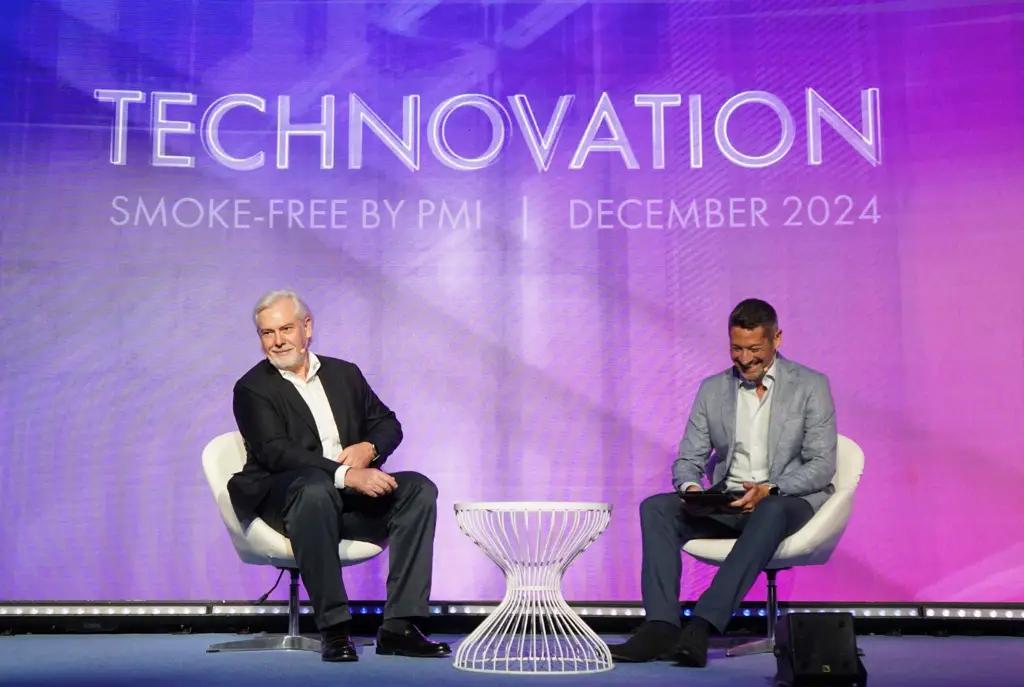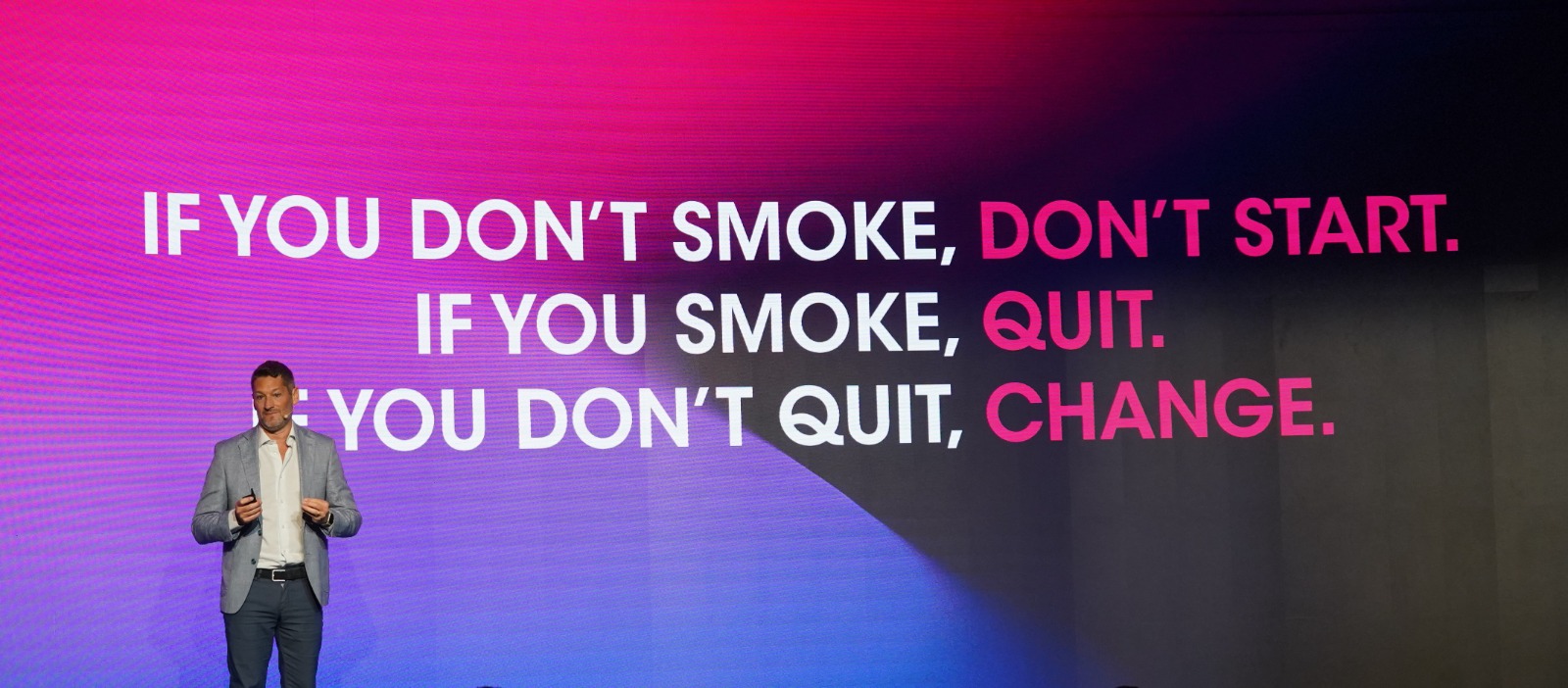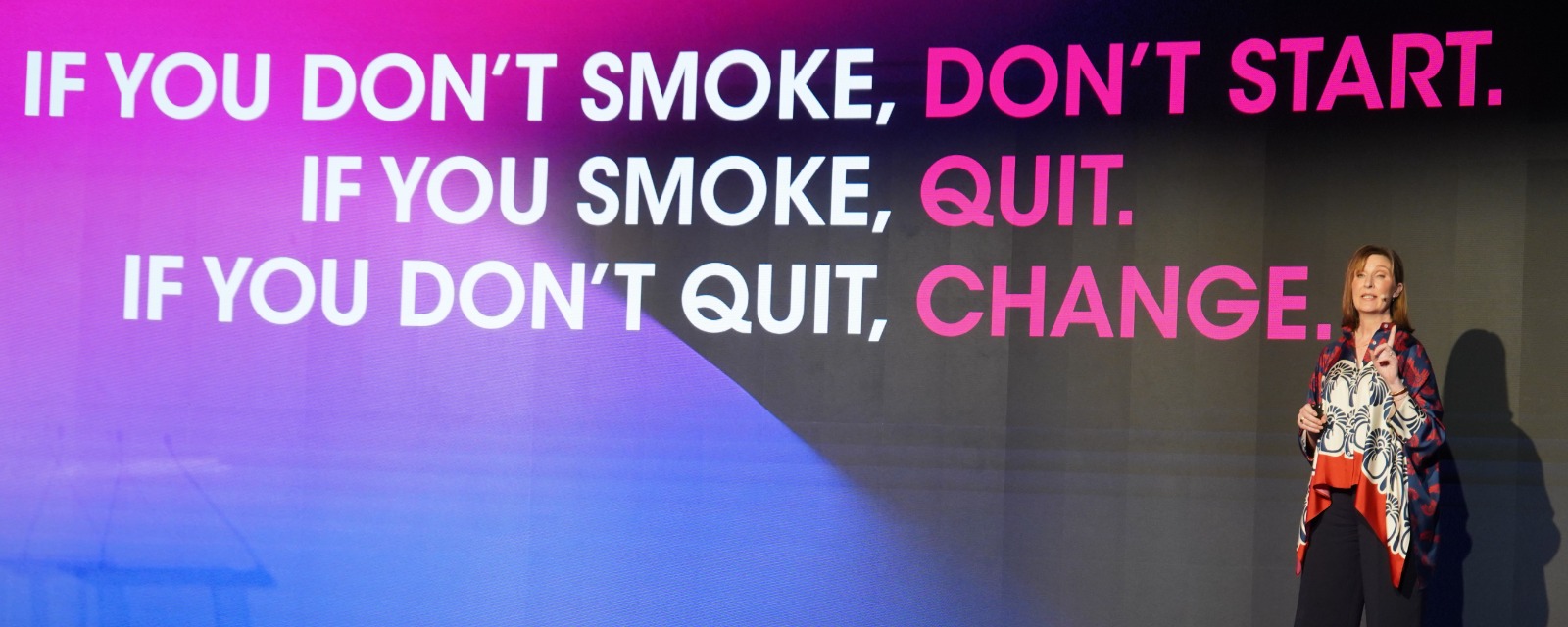
Published
12/19/2024, 11:59In today's world, the question of whether to smoke or not has almost lost its relevance. For those who have never picked up the habit, the answer is obvious—there is no reason to start. For those who have managed to quit, there is no need to go back. However, for more than a billion tobacco consumers worldwide, another important question remains: "Is there an alternative?" Participants of the Technovation 2024 conference, held on December 11 in Abu Dhabi, sought to answer this question.
Philip Morris International (PMI), one of the world’s largest tobacco companies, has set an unexpected and ambitious goal: the complete disappearance of cigarettes. The company aims to achieve this by replacing traditional cigarettes with tobacco heating systems, which, according to PMI, represent a less harmful alternative.

“Innovation is an Integral Part of Human Progress,” - says Vice President for International Communications Tommaso Di Giovanni, as he opened the event.
According to him, innovations were always a driving engine of change, starting with the use of fire and the creation of the first tools.
"Today, our goal is to move away from combustion and replace it with modern and safer heating technologies. I am sure that in just 10–15 years, cigarettes will be a thing of the past, replaced by innovation," he remarked.
There are countless examples of successfully implemented innovations: from the three-point seat belt invented by Nils Bohlin in 1959 to electric vehicles, which are gradually replacing cars with internal combustion engines.
According to Di Giovanni, society has always been skeptical of new technologies. However, over time, these innovations become a part of our everyday lives, improving them in meaningful ways.
Why, then, has the tobacco industry was behind? The answer is simple: for a long time, science and technology were unable to offer smokers a viable alternative. This changed in 2014, when PMI announced its intention to replace cigarettes with science-based, harm-reduced products.
"The company has invested more than $12 billion in research and development, creating products that are now used by over 36 million people in 92 countries. Our priority is clear: ensuring that those who don’t smoke never start, helping those who do smoke quit, and offering less harmful alternatives to those who cannot quit," said Tommaso Di Giovanni.
Innovation Always Faces Resistance
PMI CEO Jacek Olczak emphasizes that despite the company’s clear achievements, it continues to face irrational opposition.
“To draw a comparison, we had to look at examples in the tech sector, and IQOS has proven to be in the same league as companies like Facebook or Tesla. More importantly, the company has remained profitable. That allowed us to continue investing in research and development (R&D). Since the launch of our new product, we have been investing $1.2 to $1.5 billion annually in R&D,” shared Jacek Olczak.

Olczak, like Di Giovanni, noted that innovative solutions often face resistance. At the same time, we see how innovations can transform entire industries.
“For example, in Japan, over the past 10 years, 50% of the tobacco market has shifted to smoke-free formats, which has virtually eliminated tobacco smoke in the country,” he stated.
Olczak also highlighted that in some countries, such as Turkey and Vietnam, where smoke-free products are banned, cigarette consumption continues to rise.
“We believe it is crucial to provide people with information about products that can reduce harm. Denying access to this information is, in essence, an immoral stance,” he emphasized.
PMI’s Director of Communications, Dr. Moira Gilchrist, who holds a doctorate in pharmaceutical sciences, shared her journey within the company and how science played a pivotal role in the development of new products.

“When I was offered the opportunity to join PMI, I initially hesitated. But I saw a chance to address a global issue affecting hundreds of millions of people worldwide. We focus on the real causes of smoking-related diseases—not nicotine, but the combustion of tobacco,” shared Dr. Moira Gilchrist.
Gilchrist is confident that, despite skepticism, society will eventually embrace smoke-free products. She cited Sweden as an example, where the use of alternative products has reduced the smoking rate to less than 5%.
“We must focus on harm reduction if we want to make a difference,” she concluded.
PMI claims that the key issue with smoking is not nicotine itself but the combustion process, which releases carcinogenic substances. The heating process used in PMI’s products reportedly reduces harmful emissions by 95%. As a result, the company continues to invest billions of dollars into its smoke-free innovations.
“The idea of completely eliminating smoking is an idealist’s approach. We know how people should behave in a perfect world, but the reality is that humanity is far from perfect. We could spend the next hundred years urging people to quit smoking, but during that time, the number of smokers would only grow. Instead, we must focus on reducing harm for them,” concluded Jacek Olczak.



